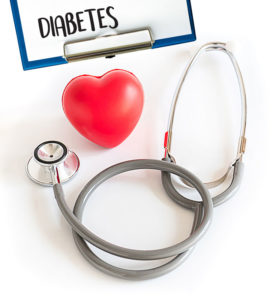By Suellen Pineda
 Some foods, like fine wine, cheese and cured meats, get better with age. As we age, though, it becomes more challenging for our bodies to convert these and other foods into the glucose our brain, muscle and tissue cells need for good health. When the challenge becomes too high, irregular blood sugar levels can lead to diabetes — a widespread chronic disease among adults, especially seniors.
Some foods, like fine wine, cheese and cured meats, get better with age. As we age, though, it becomes more challenging for our bodies to convert these and other foods into the glucose our brain, muscle and tissue cells need for good health. When the challenge becomes too high, irregular blood sugar levels can lead to diabetes — a widespread chronic disease among adults, especially seniors.
According to the American Diabetes Association, 84 million American adults have prediabetes, but nearly 90% of them don’t even know it. Prediabetes becomes Type 2 diabetes unless treated. Over time, it leads to serious health problems, including heart disease, stroke, kidney disease, eye problems, nerve damage, infections, foot sores and amputation. Also, diabetics may be at higher risk for cancer and Alzheimer’s disease.
It’s easy for seniors to miss the early warning signs of diabetes, the most common of which are blurred vision, excessive urination, increased thirst and fatigue. Falls, frailty, incontinence, cognitive impairment and depression may also signal a problem.
Fortunately, most people can normalize their blood sugar levels with diet and exercise. Some may also need medication or insulin to achieve results. Your age, test results and lifestyle will help your primary care provider determine the best course of treatment.
Self-care takes a village
It may be more difficult for older adults to prevent or treat diabetes. Seniors with physical, cognitive or financial limitations need family and friends to help them manage and support lifestyle choices. Connect them with resources. Drive them to doctor appointments and the grocery store. Cook nutritious meals together. Go for a walk. Listen when they feel down. Knowing you care will make a world of difference.
Community programs provide another layer of support for seniors and their caregivers. St. Ann’s Community, for example, has registered dietitians and nurses who assist diabetic seniors in its Adult Day Services program. Caregivers gain peace of mind because their loved ones enjoy healthy food, social and physical activity, blood sugar and medication monitoring, and ongoing disease education.
Also, St. Ann’s is a regular stop for Foodlink’s Curbside Market. This mobile grocery store brings fresh fruits and vegetables into the community, making it easy and affordable to get healthy foods. Seniors with dietary needs can also subscribe to Meals on Wheels (www.mealsonwheelsamerica.org) and receive prepared meals delivered to their door.
To get out and exercise, aging adults can take advantage of Silver Sneakers and diabetes prevention programs at the YMCA (www.rochesterymca.org).
Are seniors at a greater risk?
Yes, lifelong eating and lifestyle habits can contribute to diabetes development. Have your blood glucose tested, especially if you’re over 45 years of age and diabetes runs in your family. Being overweight or obese, physically inactive or smoking and drinking too much also raise your risk. Health conditions like high cholesterol, high blood pressure, stress, inflammation, and taking certain medications also make you more susceptible.
The holidays are just around the corner. Now is a great time to give thanks for the abundance of information, resources, and support available to help you manage your blood sugar levels. Visit the American Diabetes Association online at www.diabetes.org to learn more.
Suellen Pineda, a registered dietitian nutritionist (RDN) and certified dietitian nutritionist (CDN), is a clinical dietitian for Adult Day Services at St. Ann’s Community. Contact her at spineda@mystanns.com or visit www.stannscommunity.com.

